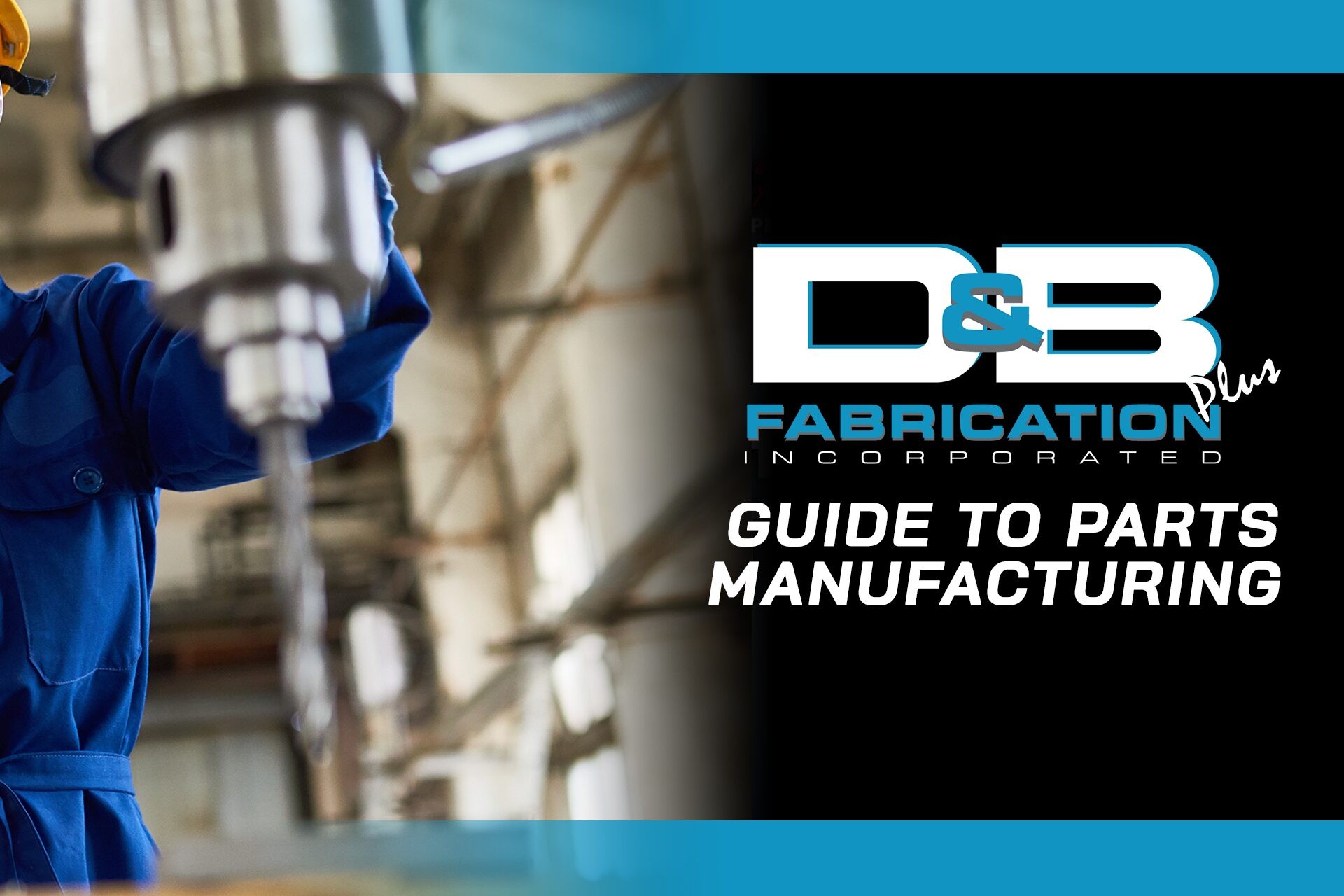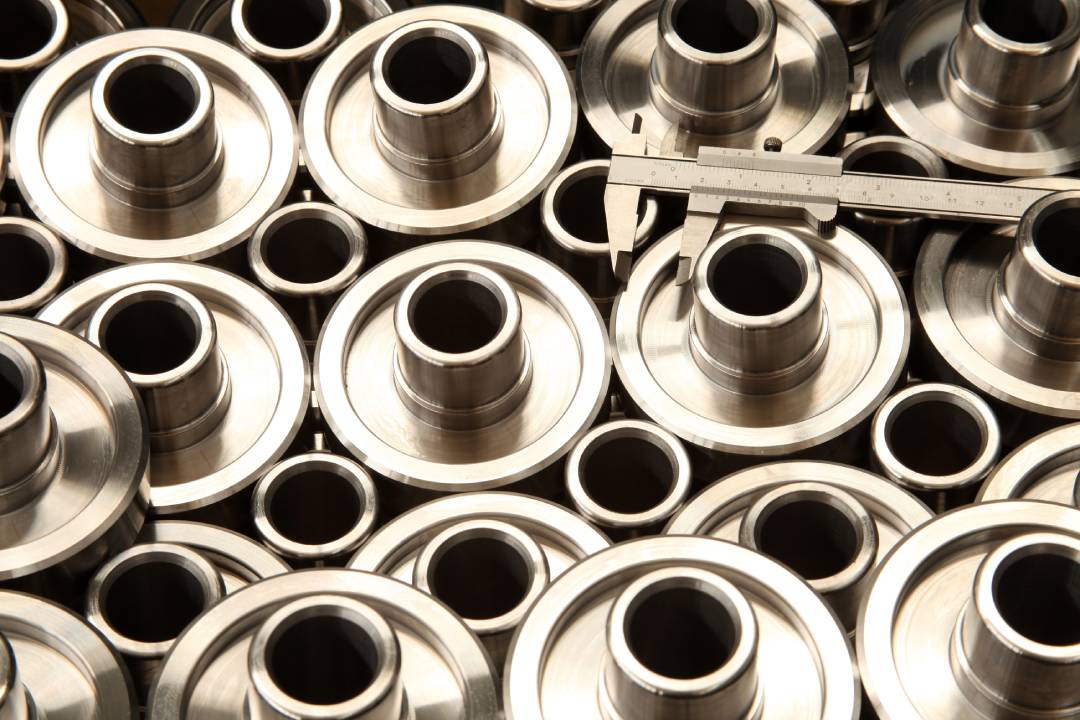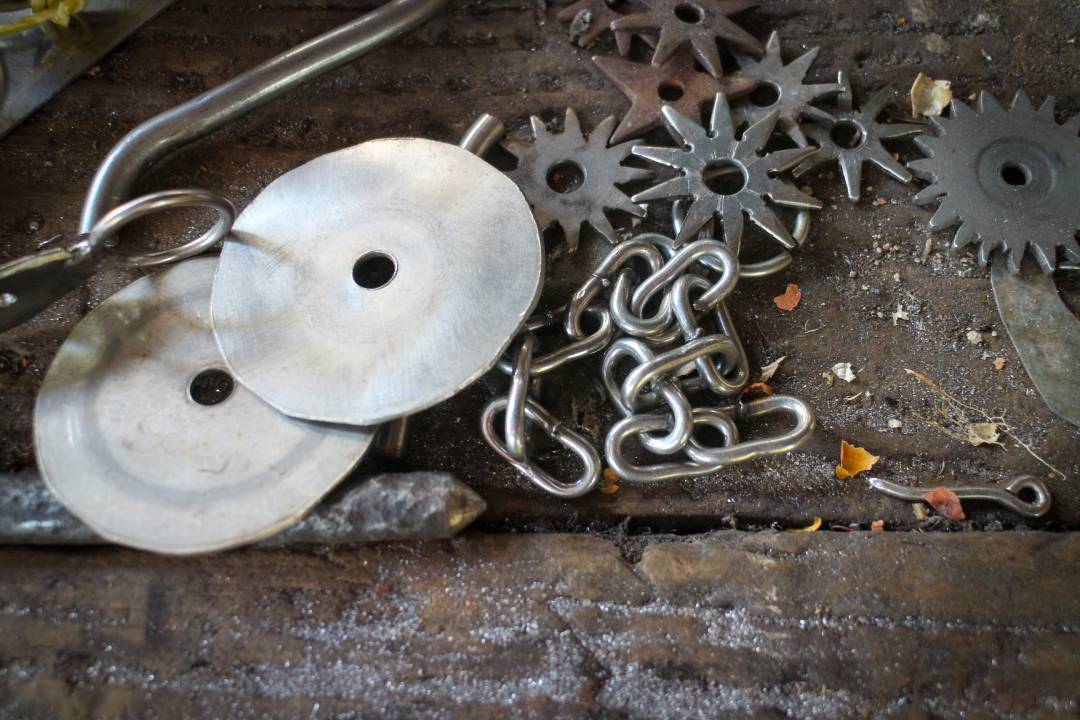The Guide to Parts Manufacturing

Parts manufacturing is a foundational process powering industries worldwide. From automotive and aerospace to industrial and electronics fields, the demand for precise and durable metal components has never been greater. As a vital aspect of modern production, metal fabrication continues to evolve, adopting advanced technologies to meet diverse industry needs.
In this guide, we’ll explore the world of metal parts manufacturing, focusing on key metalworking processes, quality control, future innovations, and how specialized services like CNC machining, waterjet cutting, and welding are transforming the industry.
The Basics of Metal Parts Manufacturing
Metal parts manufacturing involves designing, producing, and assembling components that meet exacting specifications for strength, durability, and functionality. From robust structural elements to intricate components, these parts are essential to many products and systems across industries. Whether it’s creating a simple metal bracket or a complex engine part, precision and expertise are crucial.
Key Materials Used in Metal Parts Manufacturing
Metal parts are crafted using various materials chosen for their specific properties, such as strength, corrosion resistance, or weight. Common metals include:
- Steel: Known for its strength and versatility, steel is widely used in automotive, aerospace, and industrial applications.
- Aluminum: Lightweight and corrosion-resistant, aluminum is ideal for applications where reducing weight is critical, such as aerospace and automotive parts.
- Titanium: With exceptional strength-to-weight ratios, titanium is used in aerospace and medical applications requiring durability and corrosion resistance.
Selecting the right metal ensures that parts perform effectively in their intended environments, from withstanding high temperatures to bearing significant mechanical stress.
Core Metal Fabrication Processes
The method used to manufacture a part depends on the metal type and the design complexity. Below are some of the key processes employed in metal parts manufacturing:
- CNC Machining CNC (Computer Numerical Control) machining uses computerized systems to cut, shape, and finish metal with high precision. This technology allows for complex geometries and intricate designs, ensuring parts meet tight tolerances. CNC machining is essential for creating precision components in aerospace, electronics, and industrial applications.
- Investment Casting Investment casting involves creating a mold around a wax model, then replacing the wax with molten metal to produce the part. This process yields high-quality, detailed components that are structurally sound, making it a popular choice for complex metal parts, including those used in automotive and aerospace sectors.
- Sheet Metal Stamping This process forms metal into shapes by pressing it between dies. Sheet metal stamping is ideal for producing high-volume parts efficiently, with applications ranging from automotive body panels to intricate industrial components.
- Waterjet Cutting Waterjet cutting uses a high-pressure stream of water mixed with abrasive materials to cut metals precisely without heat, making it suitable for materials sensitive to temperature changes. This technique is valuable for producing complex shapes from materials like steel, aluminum, and titanium.
- Welding Welding is essential in metal fabrication, joining parts through heat and pressure. Whether assembling structures or creating joints in machinery, welding ensures durability and strength in metal components.
- Electropolishing Electropolishing smooths and cleans metal surfaces, improving both appearance and corrosion resistance. It is commonly used in industries where hygiene and aesthetics are essential, such as medical, food processing, and electronics.
- Powder Coating Powder coating provides a protective and aesthetic finish to metal parts, applying a durable layer of powder that is heat-cured. This process protects against corrosion and wear, making it ideal for parts exposed to harsh environments.

Quality Control in Metal Parts Manufacturing
In metal fabrication, quality control is crucial to ensure each component meets precise specifications. Rigorous inspection and testing are integral to detecting defects and verifying that parts meet industry standards. Key aspects include:
- Inspection: Detailed visual and measurement inspections are conducted throughout production to catch any flaws.
- Testing: Mechanical and stress tests are performed to confirm parts can handle the demands of their applications.
- Certification: Industry certifications, such as ISO 9001, are often required to demonstrate reliability and quality.
The Future of Metal Parts Manufacturing
As technology advances, metal parts manufacturing continues to adopt innovations that enhance efficiency, precision, and sustainability:
- Automation and Robotics: Automation is streamlining repetitive tasks, boosting production speed and consistency.
- AI and Machine Learning: AI helps optimize processes, predict maintenance needs, and prevent downtime, leading to more efficient production.
- Sustainable Manufacturing: To meet environmental goals, manufacturers are increasingly using recyclable materials and minimizing waste, aiming for sustainable, responsible production.
Customization in Metal Parts Manufacturing
As demand for tailored solutions grows, customization in metal fabrication has become a significant trend. Services such as CAD/3D modeling, CNC machining, and waterjet cutting allow for precise control over design specifications, enabling the creation of unique parts that meet exacting requirements. Customization not only enhances product performance but also meets industry-specific needs, from specialized automotive components to aerospace-grade materials.

Manufacturing Parts for Industry
The manufacturing of metal parts plays a crucial role in powering innovation and progress across multiple industries.
From creating components for high-performance aerospace systems to fabricating durable parts for heavy machinery, each sector demands precision and reliability. Advancements in manufacturing processes, such as automated production lines and custom machining techniques, have enabled manufacturers to deliver components with unmatched accuracy and speed.
As industries continue to evolve, the partnership between innovation-driven manufacturing and industry-specific requirements remains vital for creating parts that drive technological advancements and meet ever-changing market demands.
Why Partner with a Professional Metal Parts Manufacturer
Partnering with an experienced metal parts manufacturer is essential for achieving the best results. Here’s why:
- Expertise: A skilled manufacturer brings years of experience to the table, ensuring parts are crafted accurately and efficiently.
- Efficiency: Professional manufacturers leverage the latest technologies, such as CNC machining and electropolishing, to achieve high-quality results with faster turnaround times.
- Consistency: Working with a reliable partner means you receive consistent, high-quality parts that meet your specifications every time.
Trust D&B Fabrication Plus Inc. for Metal Parts Manufacturing
For a trusted partner in metal fabrication, choose D&B Fabrication Plus Inc. With extensive experience and advanced technology, D&B Fabrication Plus delivers high-quality, customized metal parts tailored to your industry’s specific needs. From CNC machining to welding and powder coating, D&B Fabrication Plus is equipped to handle all aspects of your metal parts manufacturing. Contact us today to learn how they can support your project from start to finish!